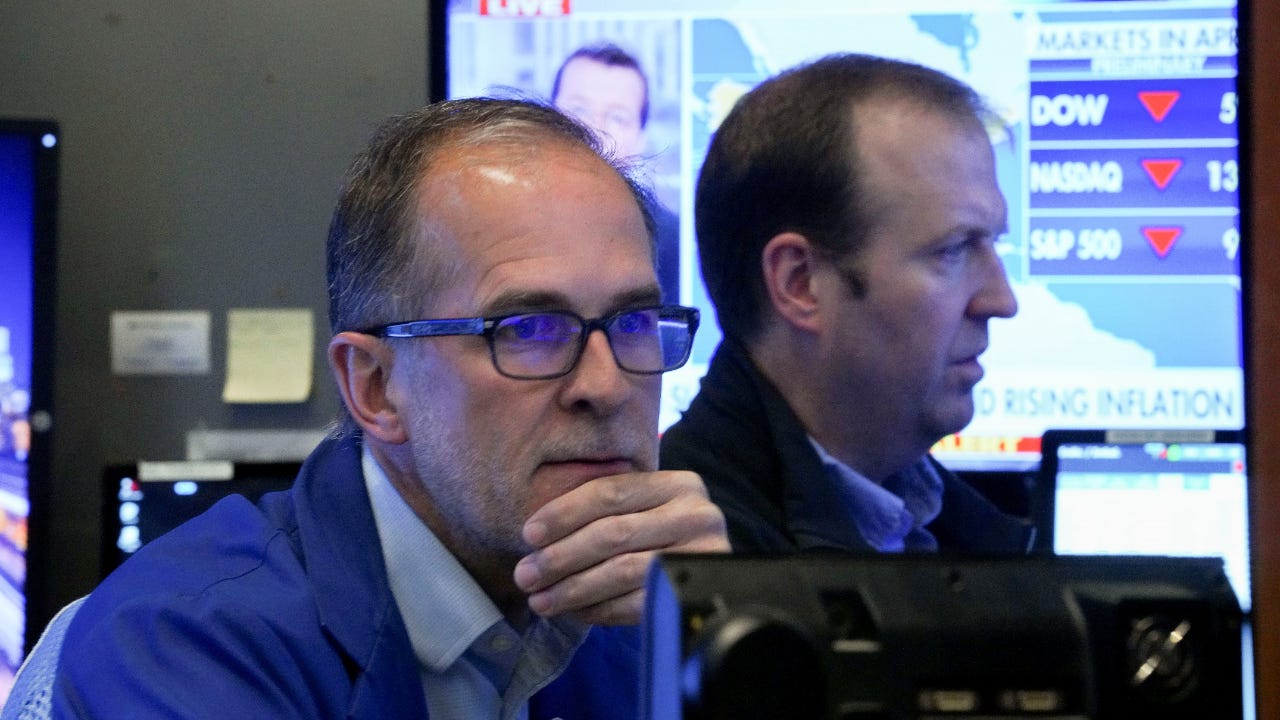5 top mistakes to avoid during a market sell-off

Key takeaways
- When stocks plunge, it can be difficult to keep an even keel.
- But sell-offs are not the time to start jumping in and out of stocks, or worse yet, panic and sell everything.
- Simply checking your portfolio less frequently during bearish markets can help you stick to long-term goals.
Stocks sold off in early April as investors grappled with how tariffs would impact inflation and the outlook for economic growth. Some investors even grew concerned about a possible recession. Some of the biggest tech companies saw their shares tumble 20 percent or more, with Tesla falling around 50 percent from its recent high. The Federal Reserve faces the challenge of whether to cut interest rates at the risk of keeping inflation above its target, or keeping rates elevated at the risk of seeing economic growth slow.
It can be concerning to watch markets fall quickly and see your portfolio and retirement accounts decline in value. But it’s especially important during market declines to keep your eyes on your long-term goals. Don’t fall into the trap of thinking you can time the market, jumping in when things are good and out when things are bad. Avoiding this and other misguided moves will serve you well in the long run.
Working with a financial advisor can help you navigate uncertain economic times. Bankrate’s financial advisor matching tool can help you find an advisor in your area.
Avoid making these investment mistakes when markets plunge
1. Don’t become a short-term trader
It can be tempting during declines to get wrapped up in the latest news and the tick-by-tick of where markets are trading. Cable news shows have rapidly moving prices flashing on the screen at all times and may hold nightly specials to discuss where things are headed next. But the truth is that these so-called experts are a lot better at explaining what has happened than what’s going to happen.
Remember why you invested in the first place and keep those goals in mind. Many people invest for long-term goals like retirement, which might still be decades away. Resist the urge to become a short-term trader just because prices are moving around a lot. If you didn’t predict the current sell-off, don’t think you can predict what will happen next.
2. Don’t chase recent winners
When markets are falling, it’s natural to think about where you could be invested to avoid the current pain. But selling what has gone down to buy what has already gone up isn’t likely to be a winning strategy over time. You may feel better in the short term and you may even make money for a period of time, but you’ll be better off sticking with your chosen portfolio allocations and rebalancing toward those allocations as prices change.
Remember that stocks are part of a long-term investment plan and their volatility is to be expected. Your reward for handling periods of high volatility is a return that has averaged around 10 percent per year for decades, based on the S&P 500.
Need expert guidance when it comes to managing your investments or planning for retirement?
Bankrate’s AdvisorMatch can connect you to a CFP® professional to help you achieve your financial goals.
3. It’s not the time to panic and sell everything
Watching a portfolio decline during a market sell-off isn’t something anyone enjoys. It can trigger an emotional response to watch money we saved and invested seemingly disappear in a period of hours or days. You might even have a very strong urge to sell, just to keep your portfolio from declining even more. But that would be a mistake.
Investors who think they can get out of the market until things settle down or until there’s less uncertainty are likely to miss the recovery when it comes. And the recovery can be just as swift as the decline, penalizing those who got out and failed to get back in.
Selling can be especially harmful if it ends up being the right call for a period of time. If stocks continue to fall after you sell, you may feel great about your decision. It’s nice to watch your portfolio stabilize while the markets are still selling off. But the problem is that it can feel so good that you may never get back in, or once you do, you’re stuck paying higher prices than you sold at.
Consider consulting with a financial advisor who can help you stick to your long-term investing plan when market volatility is giving you doubts.
(Here are some legitimate reasons to sell a stock.)
4. Don’t check your portfolio constantly
Following every move in the market and constantly worrying about your fluctuating portfolio isn’t likely to lead to sound investment decisions during a market sell-off. If you’re constantly checking, it’s probably a sign that you’re worried, which could make it more likely that you make an emotional decision.
It’s also worth reminding yourself that if you participate in a workplace retirement plan such as a 401(k), you’re likely adopting the practice of dollar-cost averaging, which involves making consistent purchases of investments (in this case, usually mutual funds) over time. This approach means that you’re buying fewer shares when prices are high and more shares when they’re low.
5. Cash is no place to hide
Cash may seem like the ideal place to be when markets are in free fall, but it’s actually a lousy asset to hold as a long-term investment. With inflation still elevated, you’re already losing purchasing power with your money in a traditional savings or checking account. The Federal Reserve hopes long-term inflation will be around 2 percent per year, so cash is very likely to be worth less over time.
If you have short-term spending needs or are building an emergency fund, cash makes sense to hold for those needs, but it doesn’t make sense as a large position in a long-term investment portfolio when your goals are still decades away. Holding a small amount of your portfolio in cash — say 5 percent or less — may help you to take advantage of market declines when they come, allowing you to make purchases at attractive prices. But remember, cash maximizes its value by actually being invested at some point, not just sitting there.
Bottom line
Market sell-offs are unnerving and can lead to emotional decision-making. But you can avoid making mistakes by slowing down and thinking through your long-term investment plan. Remember that volatility is part of investing and knowing how to handle it properly can increase your long-term returns and make it more likely that you’ll achieve your goals.
Editorial Disclaimer: All investors are advised to conduct their own independent research into investment strategies before making an investment decision. In addition, investors are advised that past investment product performance is no guarantee of future price appreciation.
Why we ask for feedback Your feedback helps us improve our content and services. It takes less than a minute to complete.
Your responses are anonymous and will only be used for improving our website.






